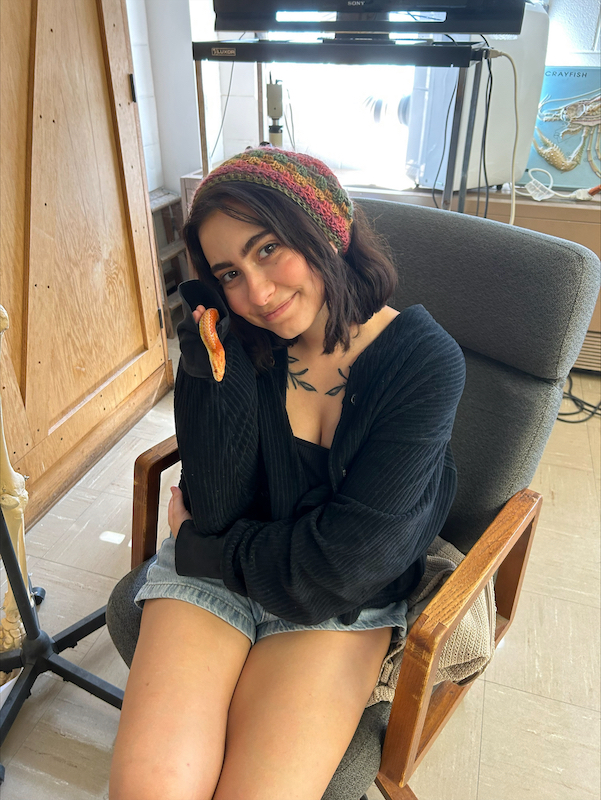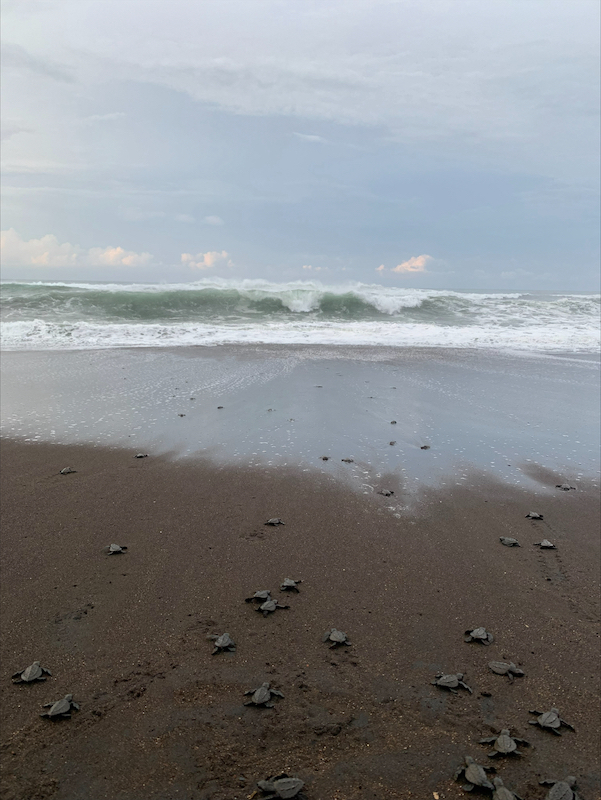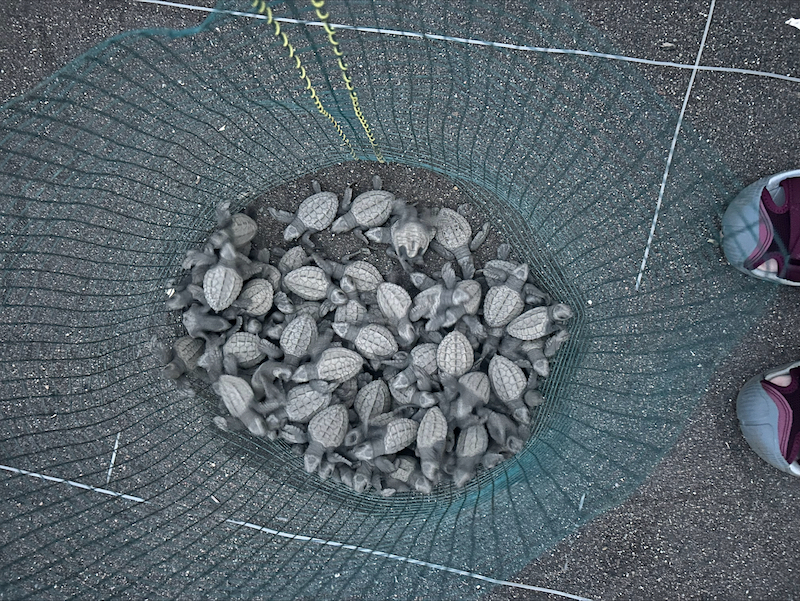Lydia Burton
 Lydia Burton, a senior majoring in environmental and sustainability with a biology
focus at Tennessee Tech University, has embarked on a journey of conservation and
research driven by her love for marine ecology and commitment to environmental sustainability.
This summer, she ventured to Costa Rica, volunteering for a sea turtle conservation
program.
Lydia Burton, a senior majoring in environmental and sustainability with a biology
focus at Tennessee Tech University, has embarked on a journey of conservation and
research driven by her love for marine ecology and commitment to environmental sustainability.
This summer, she ventured to Costa Rica, volunteering for a sea turtle conservation
program.
Burton’s path to Tennessee Tech was a bit of luck. She initially pursued psychology but found her true calling her sophomore year when she discovered her current department. She values the close-knit community in her chosen field.
“It is much smaller and allows for everyone to be more personable, and everyone knows each other. I know all the professors in my department, and they know my name,” Burton shared.
Eager to gain research experience for her future graduate studies, Burton began working on genetics with Professor Carla Hurt, Ph.D., even though she had no prior background in the subject. Burton’s dedication to her work led her to part of her summer being spent on a federal grant project involving crayfish genetics.
“I did a lot of extractions this summer, probably 300 plus,” she added, explaining her rigorous routine of processing 20 to 24 samples at a time.
The summer wasn’t all about genetics, though. Burton embarked on a unique adventure in Costa Rica, participating in a sea turtle conservation program through the university’s study abroad program.
“It was super fun; I saw this listing on the website, and I thought it would be a great experience,” she reminisced.
The heart of the adventure took place in Refugio Nacional de Vida Silvestre, a national park where Burton’s cabin was nestled in the jungle, just a short walk from the beach. Her primary responsibility during her stay was to ensure the safety and survival of sea turtle nests, which have a roughly 64-day incubation period. She and her fellow volunteers collected newly laid eggs, moved them to a protected hatchery, and closely monitored the nests. Safeguarding them from the primary threat: raccoons.

“Raccoons would pick up the eggs, drink everything inside, and leave the broken shells everywhere. So, we would find a raided nest in the morning,” Burton explained.
Despite these challenges, she and her team successfully saved numerous nests and released baby sea turtles into the ocean. Burton’s time in Costa Rica kindled her passion for marine ecology. She began to explore career paths in conservation biology, particularly focusing on marine environments.
“I’m interested in studying interactions between different species within specific marine ecosystems, such as kelp forests or coral reefs,” she explained.
When she’s not studying or volunteering, Burton is actively involved in helping relaunch the Evergreen Society at Tennessee Tech. This club, closely aligned with her field of study, focuses on environmental cleanup and outreach efforts. Burton appreciated the practical experience she’s gaining through this role and the opportunity to contribute positively to her community.
Reflecting on her journey, Burton wanted to offer some advice to students considering similar experiences, emphasizing, “I would definitely recommend studying abroad or participating in volunteer opportunities. It’s an excellent way to explore your interests, gain valuable skills and make connections with people from all over the world.”


